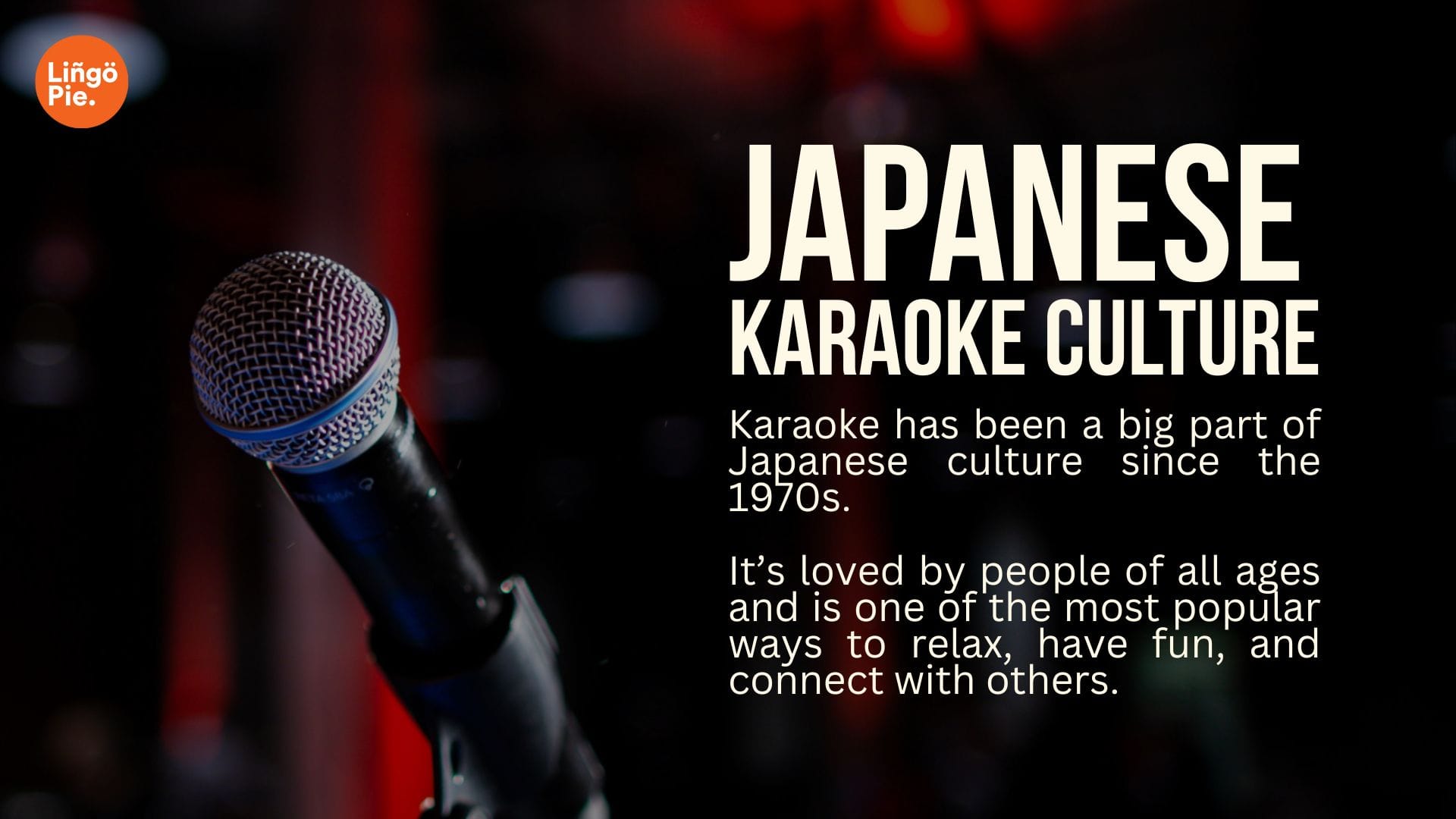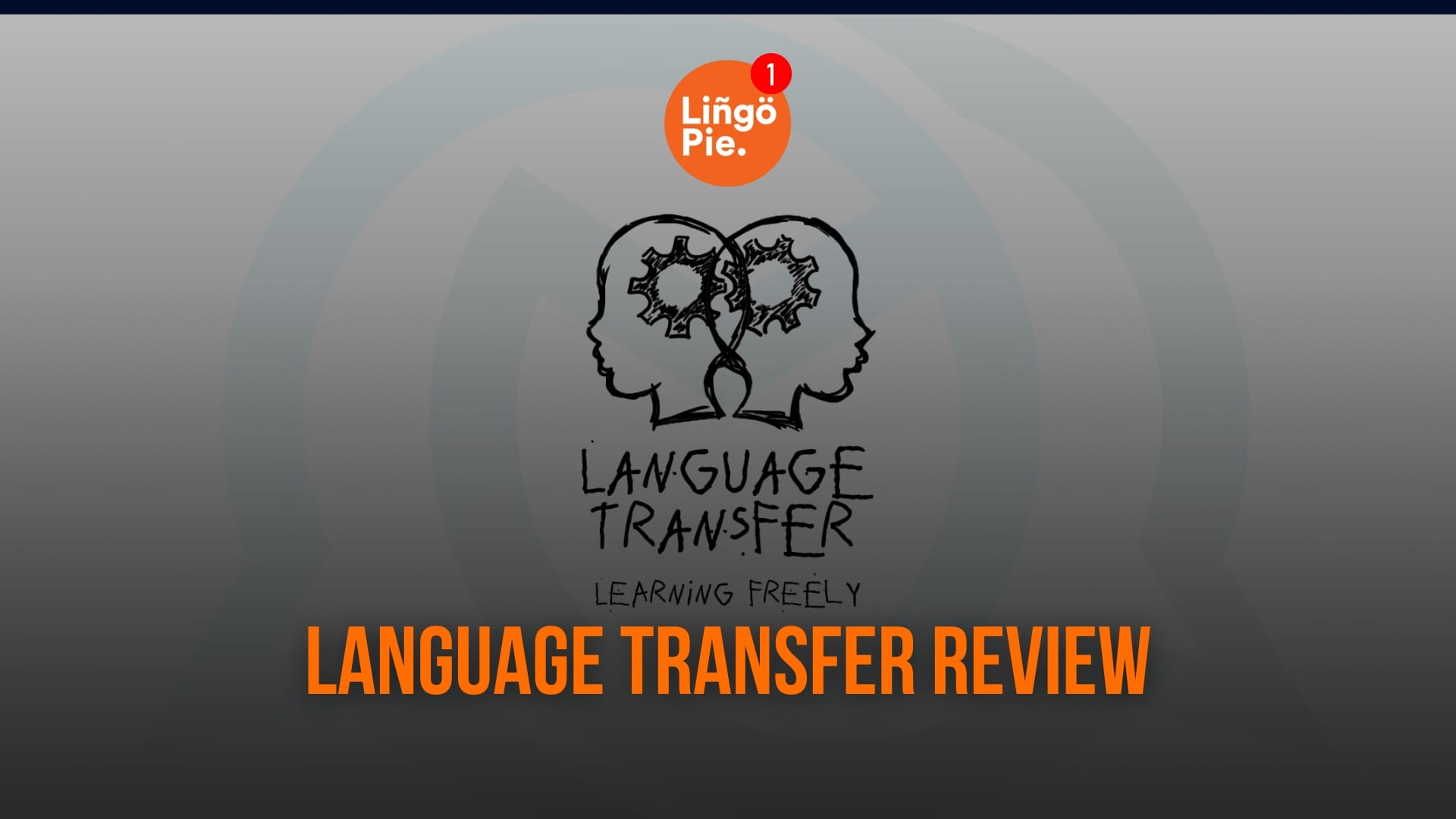If you've ever been to a nijikai (二次会) in Japan, you know karaoke is where the real fun begins. Your coworkers grab the songbook, flip through pages of familiar hits, and suddenly everyone’s looking at you expectantly. Those moments made my stomach drop when I first arrived as an ALT (Assistant Language Teacher).
However, 5 nijikai sessions with my JTEs (Japanese Teachers of English) changed everything. What started as awkward mumbling became genuine enjoyment and serious Japanese practice. While I admit struggling with some songs, a few special ones taught me proper pronunciation, helped me understand cultural references, and gave me enough Japanese expressions to speak confidently.
So in this post, let me introduce you to some of my most recommended Japanese karaoke songs. I won’t promise these alone will make you ace the JLPT, but they will definitely train your ear for Japanese words and common themes that matter to native speakers.
- How To Use Mo (も) Particle In Japanese Grammar [Guide]
- 10 Basic Japanese Sentence Patterns For Total Beginners
- Japanglish: 26+ Japanese English Words To Learn ASAP

Singing And Language Learning
What's easier to remember: cramming vocabulary lists or humming your favorite song?
Research shows songs help you remember language far better than memorising lists. Singing slows words down, gives your brain more time to process them, and helps you pick up pronunciation and natural patterns without feeling like you’re studying.
In fact, a 2015 study found that Spanish-speaking children in Guatemala learned English vocabulary and pronunciation more effectively through singing than through regular speech practice, and they remembered more six months later. This backs up the 2014 study that showed the same thing for English speakers learning Hungarian with listen-and-sing methods.
In 2010, another researcher found that learners recalled far more text after singing than after just reading. So the question now is...why exactly does this work, right?
One study discovered that sung words move about 25% slower than normal speech, so you hear each syllable clearly. Japanese singers, for example, have to pronounce every sound carefully — they can’t skip over words like in casual conversation.

Japanese Karaoke Culture
The Japanese karaoke culture began in the 1970s when Daisuke Inoue invented the idea of singing along to pre-recorded music so people could relax and have fun after work. The word itself combines kara (empty) and okesutura (orchestra). Today, you can find major chains such as Big Echo, Karaoke Kan, JoySound, and others having multiple branches across the country.
These days, karaoke is all about comfort and connection. You can find private “karaoke boxes” that let you and your friends sing without the pressure of a public stage. You get your own soundproof room, drinks and snacks delivered right to you, and a playlist with everything from classic enka ballads to the latest J-pop hits. There’s even hitori karaoke (one-person karaoke) for when you want to belt out your favorite songs alone.
So why is Japanese karaoke culture so special?
- A fun and highly cultural way to bond and break the ice
- Private, comfy, and stress-free
- Great for practicing your Japanese naturally
And let’s be honest, a drink or two never hurts. A little alcohol courage might be just what you need to belt out that tricky Japanese line confidently.
Japanese Karaoke Songs For Learning Japanese
喜劇 (Kigeki) - Gen Hoshino (2022)

Kigeki captured hearts as the ending theme for Spy × Family, one of 2022's biggest anime hits. Gen Hoshino, already a household name for his roles in dramas and films, wrote this song specifically about family bonds. He composed it while thinking about the fake family of Loid, Yor, and Anya, and what "family" really means.
I'm a huge fan of this Japanese song because the lyrics explore finding belonging and creating your own family from unlikely connections. It also correctly reflects modern Japanese views on chosen family versus traditional family structures. On the language learning side, this Japanese song is also great for catching vocabulary about family life, daily routines, and emotional connections.
| Japanese | English |
|---|---|
| 手を繋ぎ帰ろうか / 今日は何食べようか | Shall we hold hands and go home? / What should we eat today? |
| 君となら喜劇よ / 踊る軋むベッドで | With you, it's a comedy / On a creaking bed where we dance |
すずめ (Suzume) - Radwimps (2022)

Suzume became a viral sensation from Makoto Shinkai's 2022 animated film Suzume no Tojimari (Suzume's Door-Locking). The song title "Suzume" means sparrow, but refers to the protagonist’s name (Iwato Suzume). Her name originates from Ame-no Uzume, a goddess in Japanese mythology who appears in the legend of Ama no Iwato, where the sun deity hides behind a rock door.
What I love about this Japanese song is its slow pace and clear pronunciation, making it easy to sing along. The lyrics also use traditional Japanese vocabulary (wago), creating a soft and elegant sound. Words like “nikihada” (soft skin) and “ubusuna” (birthplace) give it an old, poetic feel that lets you experience the beauty of ancient Japanese language patterns.
| Japanese | English |
|---|---|
| 君の中にある 赤と青き線 / それらが結ばれるのは 心の臓 | Red lines, blues lines you carry inside / The twain shall meet at the center of your heart |
| 風の中でも負けないような声で / 届ける言葉を今は育ててる | In a voice that withstands the wind / I'm bringing up the words to deliver |
愛 ♡ スクリ~ム! (AiScReam) - AiScReam (2025)
AiScReam exploded across social media in early 2025, becoming the year's most viral Japanese song. This Love Live! franchise track features a special cross-generational sub-unit and plays on "ice cream" pronunciation while incorporating each member's initials (A-yumu, S-hiki, R-uby).
The lyrics center on romantic confession using ice cream flavors as metaphors. Each character declares her love while comparing it to her favorite frozen treat—a concept that resonated far beyond anime fandom. The playful wordplay between "ai" (love) and "ice cream" creates memorable hooks perfect for language learners.
Aside from making TikToks about this (I'm guilty of this!), this song should be on your playlist because it uses simple sentence patterns, food vocabulary, and confession language. The repetitive structure and clear pronunciation also make it excellent for beginners.
| Japanese | English |
|---|---|
| ルビィちゃん!何が好き? / チョコミント よりも あ・な・た♡ | Ruby-chan! What do you like? / More than chocolate mint, it's Y-O-U! |
| アイ 愛、スクリ~ム SCREAM 叫びましょ / (スクリーム! アイスクリーム!) | I love, scream! Let's shout / (Scream! Ice cream!) |
One Day - SpyAir (2021)

“One Day” by SPYAIR is a powerful rock ballad that gained huge popularity as an ending theme for Haikyuu!! TO THE TOP in 2020. Known for their anthemic choruses and emotional lyrics, SPYAIR poured their signature energy into this song about holding onto hope and pushing forward, no matter how tough life gets.
This is a great song to practice because it uses clear, straightforward phrasing, lots of positive expressions, and words you actually hear in everyday Japanese. Plus, the strong rhythm helps you get comfortable with natural pronunciation while feeling inspired at the same time.
| Japanese | English |
|---|---|
| いつかたどり着ける どんな夜も | One day we will reach it, no matter how dark the night |
| 小さな火が今もまだここで笑っている | A tiny flame is still smiling here even now |
夜に駆ける (Yoru Ni Kakeru) - Yoasobi (2019)

“夜に駆ける” (Yoru ni Kakeru) by YOASOBI took Japan by storm when it dropped in late 2019, quickly becoming one of the most-streamed Japanese songs of all time. This debut single, sung by Ikura and produced by Ayase, is based on the short story Thanatos no Yūwaku and tells the haunting story of two lovers pulled toward each other — and toward the night.
Despite the dark theme, its bright melody, fast pace, and vivid lyrics made it an instant hit on TikTok and karaoke playlists everywhere. It is the perfect song for advanced learners because it pushes your listening skills by blending everyday phrases with poetic lines.
| Japanese | English |
|---|---|
| さよならだけだった その一言で全てが分かった | All I understood was goodbye — that single word said it all |
| 夜に駆け出す 君の笑顔を思い出してた | I raced into the night, remembering your smiling face |
明日の笑顔のために (Asu no Egao no Tame ni) - Yumi Matsuzawa (2023)

“明日の笑顔のために” (Asu no Egao no Tame ni) by Yumi Matsuzawa is one of those classic anime songs that still feels fresh decades later. Originally used as the ending theme for Gate Keepers, she re-recorded it in 2023 for her anniversary best album, giving it new life for a whole new generation.
The song is all about hope, support, and being strong for the people you care about. I love how the lyrics feel like an encouraging pep talk — they’re simple, positive, and full of natural phrasing that’s perfect for learners.
| Japanese | English |
|---|---|
| 明日の笑顔のために 強くなれる気がする | For tomorrow’s smile, I feel I can become stronger |
| 大切な誰かのために 自分になれる気がする | For someone precious, I feel I can be myself |
ドライフラワ(Doraifurawa) - Yuuri (2022)

Dry Flower became 2021's biggest Japanese hit, claiming the #1 spot on Billboard Japan's year-end Hot 100 chart. You probably heard of Yuuri before because he was also the hit maker behind the "Kakurenbo."
Basically, the song captures the aftermath of a relationship from the woman’s perspective, using dried flowers as a metaphor for fading love. The lyrics reference someone who contacts the narrator inappropriately after their breakup, expressing the complicated emotions of missing someone while knowing the relationship was toxic.
If you're serious about learning emotional vocabulary, relationship terminology, and conversational Japanese expressions, this song is definitely for you!
| Japanese | English |
|---|---|
| 多分、私じゃなくていいね / 余裕のない二人だったし | Maybe it would be better if it weren't me / We were both stressed and had no room to breathe |
| 声も顔も不器用なとこも / 全部全部 嫌いじゃないの | Your voice, your face, your clumsy parts / I don't hate any of it, not at all |
Clock Strikes - One Ok Rock (2013)

Clock Strikes stands as one of ONE OK ROCK's most emotionally charged tracks from their breakthrough album Jinsei×Boku= (Life Times Me Equals). Released March 6, 2013, this song propelled the Tokyo rock band toward international recognition and became a fan favorite despite never being released as a single.
One reason you should consider this song from One Ok Rock is that it has bilingual lyrics that allow Japanese speakers to understand some of the most important parts of the lyrics. The song also teaches emotional vocabulary and expressions about time, relationships, and inner struggles.
| Japanese | English |
|---|---|
| 永遠なんてないと言い切ってしまったら / あまりにも寂しくて切ないでしょ? | If you declare that there's no such thing as forever / Isn't that too lonely and heartbreaking? |
| 誰もが本当は信じたいけど / 裏切られれば深く傷ついてしまうもの | Everyone truly wants to believe / But if betrayed, it wounds you deeply |
ナイトダンサ(Naitodansā) - Imase (2022)

“ナイトダンサー” (Night Dancer) by imase blew up in 2022 and became one of those songs you hear everywhere — from TikTok to karaoke rooms. Imase, a rising singer-songwriter, wrote this upbeat track about letting go, dancing through the night, and feeling alive in the city lights. It’s not tied to an anime or drama, just pure J-pop fun that crossed borders and even charted in Korea.
I love this one because it’s catchy, repetitive, and super clear to sing along to. The simple phrases and mix of Japanese and English make it perfect for beginners who want to practice pronunciation and feel the vibe of everyday conversation. It’s also just plain fun to belt out with friends.
| Japanese | English |
|---|---|
| どうでもいいような夜だけど | It’s a night that feels like it doesn’t matter |
| 響めき煌めきと君もまだ止まった | You’re still here, shining and echoing |
アイデア (Idea) - Gen Hoshino (2018)

Idea served as the theme song for NHK's morning drama series Hanbun, Aoi (Half Blue Sky), one of Japan's most-watched television programs. Hanbun, Aoi aired from April to September 2018, achieving an average viewership rating of 21.1%. The drama's success propelled "Idea" to become Hoshino's fourth consecutive number-one hit on Billboard Japan Hot 100.
On the language learning part, this song features a lot of poetic vocabulary about nature, emotions, and everyday sounds. It also covers a few expressions for communicating abstract concepts and creative expression in Japanese. Pretty useful, eh?
| Japanese | English |
|---|---|
| おはよう世の中 夢を連れて繰り返した / 湯気には生活のメロディー | Good morning World, I took my dreams to repeat / Melody of life is in the rising steam |
| 進むこの道で影が差してたら / アイデアひとつで切り抜けよう | If shadow looms ahead on this ongoing road / Think of an idea to get by |
Learn Japanese With Lingopie Subtitles
If you have ever played a Japanese music video and realized there are no subtitles, you know how frustrating it is. It can really kill the mood for karaoke at home, and you miss out on picking up natural phrases as you go.
That is why I love using Lingopie and Lingopie Music. Just hit play, and you get dual subtitles matching every line. No guessing or half-hearing the words.
Here is what makes it even better:
- Watch with Japanese and English subtitles at the same time, so you see how the language really works
- Click on any word to see its meaning right away
- Save any word you like to your own flashcards with one click
Lingopie turns your karaoke session into a real learning moment. You enjoy the song and pick up useful Japanese without even feeling like you are studying.
Tune In And Learn Japanese Today
And there we have our complete list! As you can see, singing Japanese songs is one of the easiest ways to remember new words and speak more naturally. With a Lingopie free trial or subscription, you can access Lingopie Music, follow along with dual lyrics (Japanese and English), click on words to see what they mean, and save anything you want to practice later.
So if you are ready to level up your Japanese, try Lingopie today! Put on your favorite Japanese songs, sing along with confidence, and see how much you can pick up just by having fun.






![12 Best Japanese TV Shows To Learn Japanese [2026]](/blog/content/images/size/w300/2023/09/C-pia-de-imgs-blog---Spanish-1--10-.png)
![How To Write The Japanese Kanji For Love [+ FREE Printable]](/blog/content/images/size/w300/2025/03/Japanese-Kanji-for-Love-1.jpg)

